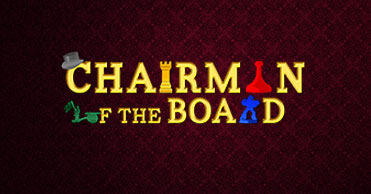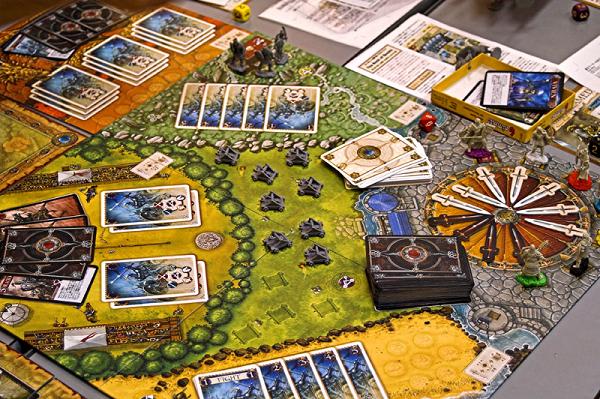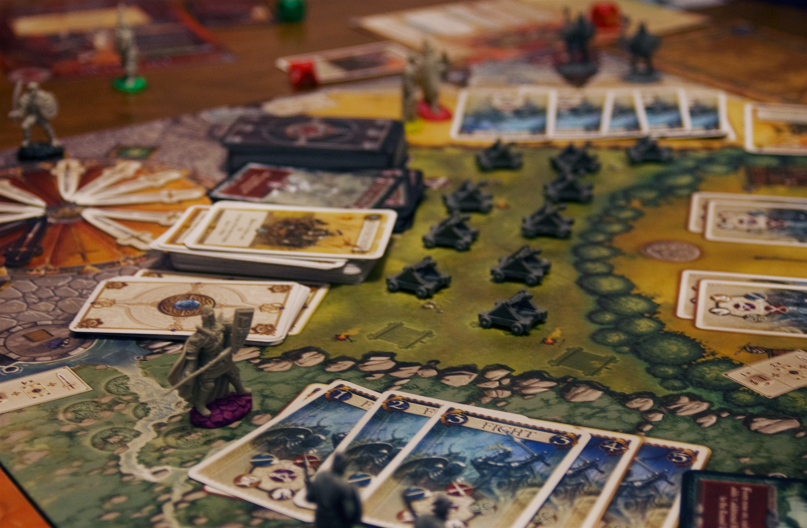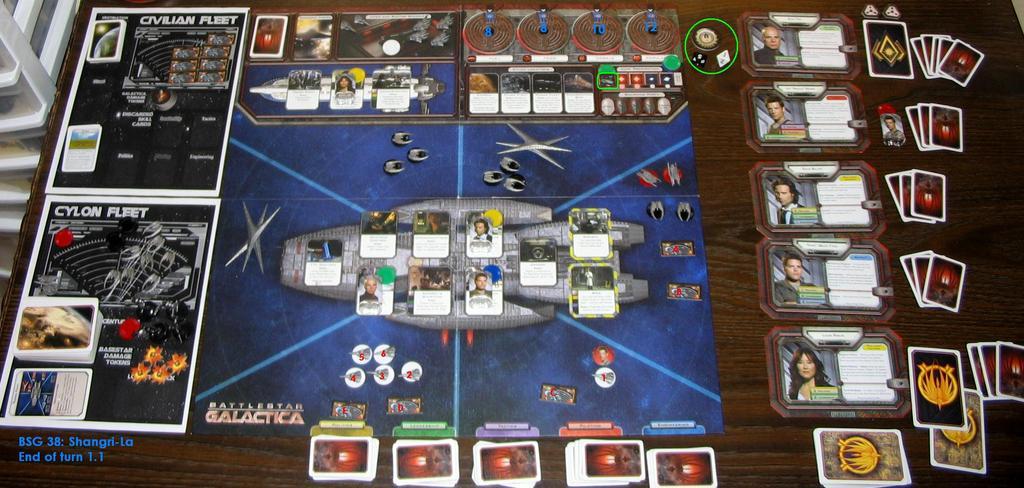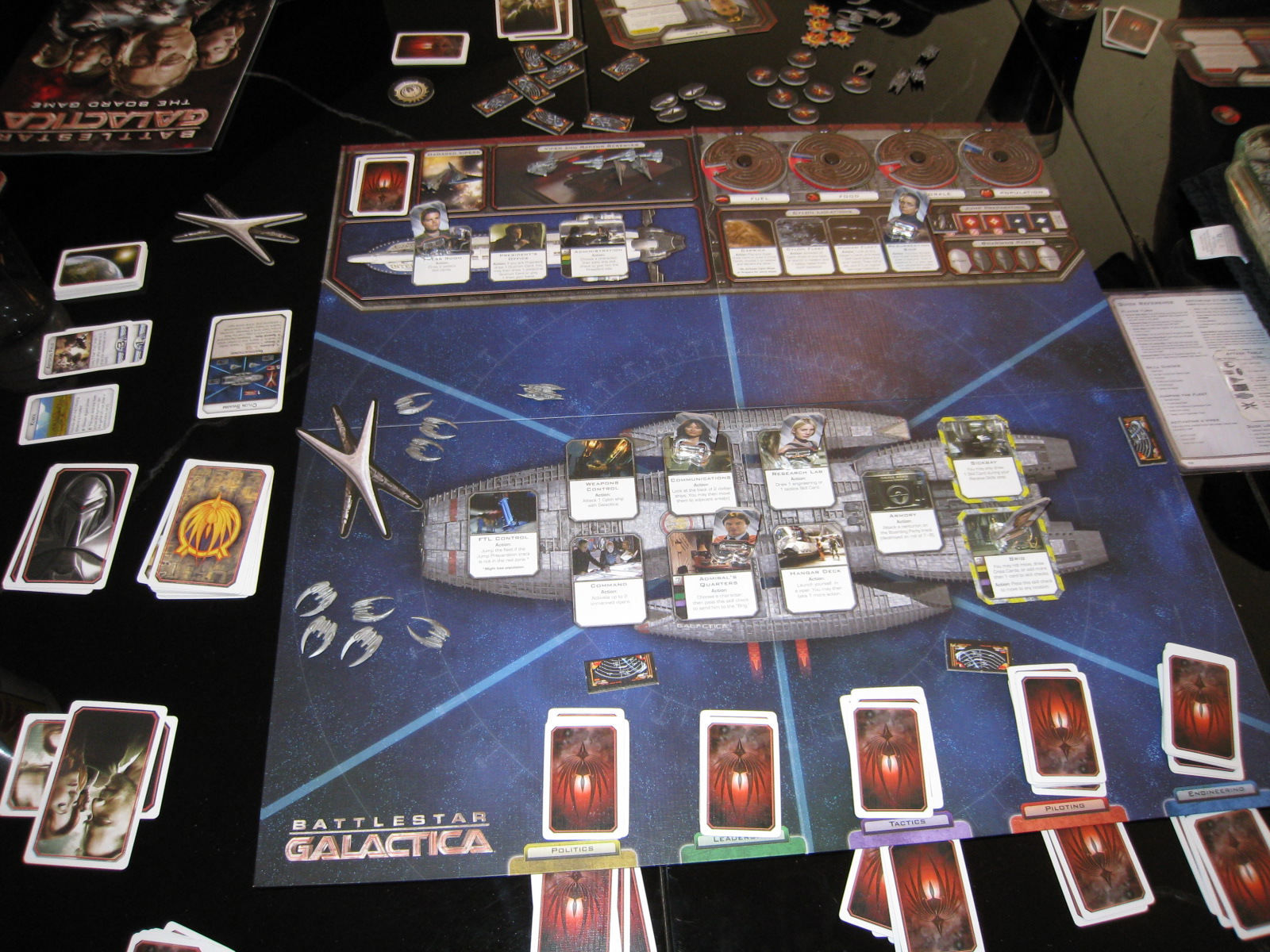Someone at the table is lying to me.
The game is Shadows Over Camelot and things are looking hairy. We heroic Knights of the Round Table already have our hands full try to halt invading armies, retrieve Excalibur and seek out the Holy Grail, but another more insidious problem has arisen. One of us is a traitor. While we valiantly struggle to keep the kingdom alive, one of our own is undermining us from within, dismantling our team piece by piece. The worst part of it all is that my overly hostile approach to sussing out the traitor has backfired — everyone thinks I’m the traitor now.
Okay, I lied. That’s not the worst part. That’s the best part of a game like Shadows Over Camelot, where the board itself is second fiddle to the web of lies that form above the table. Although this cooperative Arthurian adventure game popularized the “traitor” mechanic, it’s a game concept that’s become commonplace in dozens of other popular games and for good reason: no other form of entertainment can do it. Board games are the only medium where deceiving and lying to your friends is considered acceptable. It’s the only time where you can ruin your buddy’s plans and stab him in the back and be laughing about it together thirty seconds later. Certain board games encourage and reward you for being an outright bastard and that’s nothing short of astonishing.
Let’s start with Shadows Over Camelot, since it got the whole traitor thing started in the first place. The gameplay is generally pretty simple: each player plays a knight with a specific ability and players travel the board attempting to complete quests. However, every time you do something good, you also have to “progress evil,” which is just as heart-attack-inducing as it sounds. Sure, some evil actions will seem relatively harmless at the beginning of the game, but you’ll be kicking yourself thirty minutes later when you realized that you progressed evil in a way that has doomed everyone.
Naturally, you win Shadows Over Camelot by trying to balance every evil action with a good action that will benefit the team more than the evil action hurt it. It’s already a difficult task since so few quests are possible to complete alone and it becomes even more daunting since someone at the table may very well be plotting against you. At the start of the game, players are dealt cards face down that inform where their loyalties lie. Sometimes there’s no traitor. Sometimes there is. In both cases, you can cut the paranoia with a sword.
Why exactly is Paul hanging out at the Excalibur quest for so long? What cards is he discarding? Why the hell did Ashley go to the Black Knight quest, only to immediately leave it without doing anything? Innocent mistake or an intentionally wasted turn? Pretty soon, everyone at the table will start seeing everyone else as a potential backstabber and the accusations start flying. Or, everyone at the table seems to be playing nobly and honorably, which is actually even worse. If there is a traitor, they’re hiding it awfully well.
Although the theme is cool and the board downright gorgeous, there actually isn’t too much to the gameplay in Shadows Over Camelot. You collect cards, hope you can get the right ones to complete a quest, journey to that quest and play that cards. It’s like Medieval poker, where a Full House will help you win a tourney for some reason. Thankfully, the game isn’t all about card collecting — it’s about trying to collect cards while knowing that someone else at the table may be hoarding and discarding the cards that everyone else needs to win the game.
And that’s where we come to Battlestar Galactica, a game that takes the foundation of Shadows Over Camelot and uses it to create one of the best games of all time. Yes, they somehow managed to make a TV tie-in board game into a masterpiece. It boggles the mind.
Like in Shadows Over Camelot, Battlestar Galactica sees the entire table (supposedly) working together. Each player is a soldier, politician or engineer about the title spaceship, working overtime to help the remnants of the human race flee from the robotic Cylons, who have nuked the human worlds and killed billions. Running the ship is already a tough task. Every turn brings crisis after crisis, with enemy ships attacking and supplies dwindling. In an inspired design choice, “population,” “food” and “fuel” are all represented as dials on the board, letting you watch as your precious supplies slowly dwindle.
To top it all off, someone (or someones) at the table is secretly a Cylon agent, working to destroy everyone from within. To make it all the more harrowing, players can begin the game as a human but become a Cylon halfway through the game (waking up as “Sleeper Agents”). Having already earned your trust, they become free to wreak havoc across the board.
Battlestar Galactica can be a stressful experience, to put it mildly. Depending on which character you’re playing, you will have a very specific skill set, making your character an extremely valuable cog in an already limited machine. Pilots need to help fight off enemy attacks. Politicians and scientists need to keep control of the ship itself. The Admiral is particularly important, since he is in charge of navigation and the extremely limited nuclear weapon supply. If a random pilot is secretly a Cylon, you could be in trouble. If the Admiral is a Cylon, the results can be devastating. After all, what’s worse than learning that your military commander has been taking the fleet in the wrong direction while frivolously wasting your nukes?
What ultimately gives Battlestar Galactica the edge on Shadows Over Camelot is that the theme extends into every single aspect of the gameplay. You’re still collecting cards to solve problems, but everything is so much more specific. If a crisis calls for cards of a specific color to solve, that’s because it requires military and political knowledge, which are cards that can only be obtained by politicians and soldiers. That means you aren’t just laying down cards — your character is expending his or her knowledge and assets in a particular field in order to help everyone stay alive. Naturally, cards are played facedown, so a traitor may sneak in a few wrong colored cards to sabotage the whole thing.
Things rarely “get better” in Battlestar Galactica and that’s part of the fun. It’s a simulation of everything going wrong at once, a thrilling depiction of a space adventure where nothing goes right and the heroes are always desperately clinging to safety. In other words, it’s a perfect recreation of the show. How do you deal with a food shortage while battling an enemy boarding party while fighting enemy spacecraft while attempting to impeach the President because you think he’s’ a Cylon? That’s the question. Winning a game of Battlestar Galactica is fucking achievement.
But when you strip away the board and the cards and fancy themes, Battlestar Galactica and Shadows Over Camelot are both about the same thing: trying to work together with your friends to achieve a greater goal…or lying to their faces while dismantling everything and blaming someone else when they suspect you. You don’t play these games in a bubble. To play these games in silence is to miss the point. You need to shout, you need to scream, you need to plead and you need to beg. You need to wildly accuse your best friend of being a traitor and demand that everyone joins you in helping send him to the brig. You need to put your heads together and solve an unsolvable puzzle in order to keep the entire group alive. You need to interact with other human beings and talk and think together.
How many other forms of entertainment allow for that?
